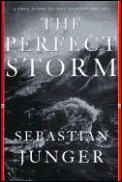
Now that my book is out, I'm starting to hear back from people who have lived the things I wrote about. It's always a tricky thing for a writer: You're writing about people, not for them, but their opinion becomes extraordinarily important. That is particularly true of a topic like this, where people have died and lives have been altered and families have taken on an emotional burden that they couldn't have imagined a few years earlier. One of the soldiers in the platoon said to me, "You've explained us to ourselves." That was about the best review I could imagine getting. The wife of a veteran who was in a unit I accompanied sent me a message recently: "Reading
War has finally told me the things he hasn't been able to."
Soldiers put on a brave face when talking to journalists — and so do their spouses — but the emotions have to come out eventually. One of the purposes of good writing — of the arts in general — is to provide a trigger for feelings that otherwise might not find an outlet. And so here I am now, as a journalist, hearing stories from family members that rival anything I heard on the battlefield. Women who have spent fifteen months worrying and looking forward to the day their husband would come home from deployment, are now discovering that the really hard part hasn't even begun. The men come home with issues that no amount of love and understanding can make go away. It's confusing to them — "Surely," they think, "love is more powerful than PTSD!" The terrible truth is that many times, it's not.
 When I went to Afghanistan for this project in 2007, it was considered the "other" war. Iraq was the "real" war, and Afghanistan was sort of happening out of the public eye. Because Afghanistan was sidelined for so many years — not enough men, not enough resources — it grew into a monster that may well prove harder to win than the main war we thought we were fighting. Having read the emails from wives and family members of combat veterans, I'm now starting to think of their struggles as a kind of "other war." In the face of violence and jail time and alcoholism, these women have stood by their men and seen them through an extremely dangerous passage. The stakes are the same: health, sanity, in some cases even their lives. There is a difference, though: soldiers fight in a group and draw extraordinary strength from the men around them. Wives and family members are alone in their battle. They are at home by themselves or with their husband facing a psychological threat that neither person has been trained to deal with.
When I went to Afghanistan for this project in 2007, it was considered the "other" war. Iraq was the "real" war, and Afghanistan was sort of happening out of the public eye. Because Afghanistan was sidelined for so many years — not enough men, not enough resources — it grew into a monster that may well prove harder to win than the main war we thought we were fighting. Having read the emails from wives and family members of combat veterans, I'm now starting to think of their struggles as a kind of "other war." In the face of violence and jail time and alcoholism, these women have stood by their men and seen them through an extremely dangerous passage. The stakes are the same: health, sanity, in some cases even their lives. There is a difference, though: soldiers fight in a group and draw extraordinary strength from the men around them. Wives and family members are alone in their battle. They are at home by themselves or with their husband facing a psychological threat that neither person has been trained to deal with.
These women are waging an incredibly brave fight — one that is as essential to the broader war as any fought with actual weapons. I'm aware that the politics of this war are a matter of tremendous pain and confusion in this country, but whatever your opinion on these serious matters, the veterans will be coming home and rejoining our society. That is happening whether you support the war or not. And, as a society, we have to honor their sacrifice and help them — and their spouses — in any way possible. The spouses are doing the work of an entire nation in bringing these veterans home. That struggle requires a courage and fortitude that rivals any found on the battlefield. We must honor it that in every way possible.